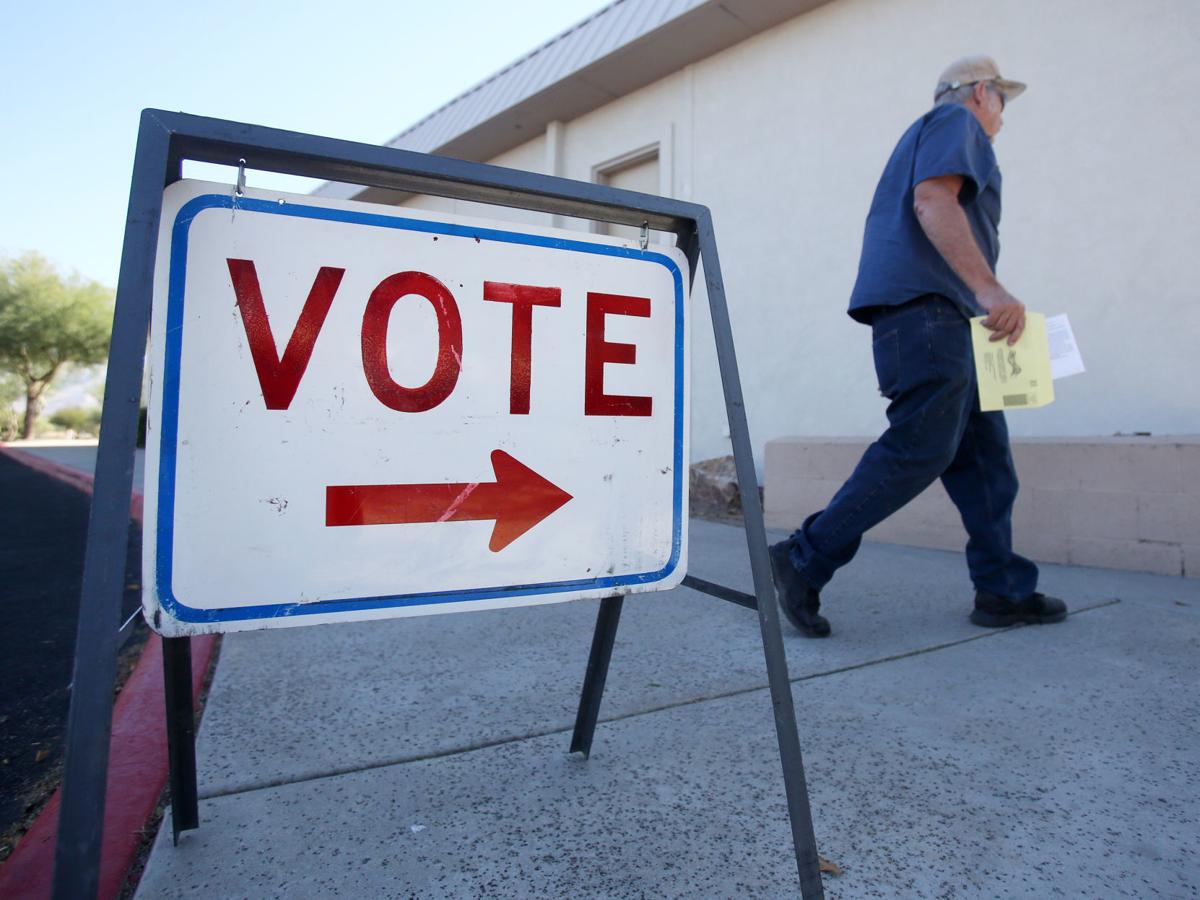PHOENIX — The Arizona Libertarian Party is making a last-ditch effort to quash a state statute that it says was designed to keep its candidates off the ballot.
In filings with the U.S. Supreme Court, attorney Oliver Hall from the Center for Competitive Democracy said the law pushed through the Republican-controlled Legislature in 2015 sharply increased — sometimes by a factor of 30 — the number of signatures needed for Libertarian candidates to qualify for the ballot.
That wasn’t by accident. In fact the record shows that J.D. Mesnard, then a GOP representative from Chandler and now a state senator, told colleagues that Republicans would have been elected to two congressional seats had it not been for what he said were Libertarian candidates in the same race siphoning votes that otherwise would have gone to the GOP contenders.
“I can’t believe we wouldn’t see the benefit of this,” Mesnard said during a floor speech.
Hall told the justices the law had its desired effect: Only one Libertarian qualified for the ballot in 2016 — and none at all in 2018.
“Arizona has relegated the Arizona Libertarian Party to a state of electoral purgatory,” Hall wrote. “The party is ballot-qualified under Arizona law, but it cannot place its candidates on the ballot.”
All that, he said, is unconstitutional.
Hall acknowledged that the U.S. Constitution gives states the power to regulate the times, places and manner of holding elections. But he said that was “not as a source of power to dictate electoral outcomes, to favor or disfavor a class of candidates, or to evade important constitutional restraints.”
So far, Hall’s arguments have failed to sway federal judges. They concluded the wording of that 2015 law, strictly speaking, treats all parties equally in how they get their candidates qualified for the ballot.
But it’s the way the system actually works that is behind the litigation.
Prior to 2015, candidates for recognized minor parties could get on the ballot simply by submitting petitions with the signatures of one-half of 1% of those registered with the party.
In 2018 for the Libertarians, a statewide candidate would have had to collect around 160 names.
That year, the Republicans who control the Legislature lowered the requirement for all parties to one-quarter of 1%. But they engineered it so the figure was based not on party registration but on all who could sign a candidate’s petition.
That added political independents to the base, who actually outnumber Democrats and run a close second to Republicans.
So in 2018 the minimum signature requirement for a Libertarian running statewide was 3,153, about 10% of all those actually registered as Libertarians.
Meanwhile the numbers for Republican and Democrat nominations remained close to what it always had been: 6,223 signatures for GOP candidates and 5,801 for Democrats, both a small fraction of each party’s voter registration.
Hall said the state cannot force Libertarians to depend on political independents to get their names on the ballot, particularly as they cannot actually vote in the primary. The bottom line, he said, is that a Libertarian contender, seeking support from like-minded people who are affiliated with the party, have a much higher burden.
Take that 2018 primary.
There were about 1.26 million registered Republicans. So a GOP contender, seeking signatures of just Republicans, needed just signatures from 0.4% of party faithful. But for a Libertarian, getting 3,153 signatures from only Libertarians amounted to more than 10% of total registered Libertarians.
Judge Margaret McKeown of the 9th Circuit Court of Appeals acknowledged that, for some offices, the party’s desire to have petitions signed only by party faithfuls could amount to 30% of registered Libertarians.
But in writing a ruling earlier this year upholding the law, she said that Libertarians, just like Republicans and Democrats, are free to seek the signatures of just 1% of those who are eligible to sign petitions. That means not just Libertarians but more than a million Arizonans who are registered to vote as independents.
McKeown said it is the decision of the Libertarian Party and not the Legislature to allow only party members to participate in the primary.
Put simply, McKeown said the problem is of the party’s own making because of its exclusionary policy.
And she said that voiding the 2015 law — and going back to the prior law — would “incentivize parties to have fewer registered members and therefore artificially reduce the signature requirements.”
Hall, however, said forcing Libertarian contenders to rely on the support of independents is unconstitutional, saying it amounts to “a form of compelled association.”
“Arizona has no legitimate interest in requiring that Libertarian candidates demonstrate support from independent voters who are not eligible to vote for them, and who have no reason or incentive to support the candidates’ effort to obtain (the party’s) nomination.
He also told the justices that what the state want is unusual.
“Arizona stands alone in requiring that candidates demonstrate support from voters who are not eligible to vote for them,” Hall wrote.





